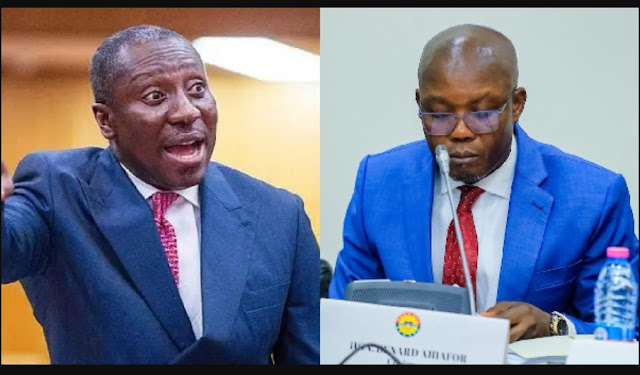A tense moment erupted in Ghana’s Parliament when Member of Parliament Alexander Afenyo Markin engaged in a heated confrontation with the First Deputy Speaker over what he described as unfair procedural conduct. The clash highlighted growing frustration among lawmakers about parliamentary leadership and the need for more transparent governance in legislative sessions.
Afenyo Markin accused the First Deputy Speaker of bias in recognising MPs for contributions during debate, claiming that certain voices are being marginalised while others are given undue prominence. He argued that this imbalance undermines the democratic core of parliamentary discourse and weakens the quality of legislative oversight.
He went further to question rulings on points of order suggesting that decisions by the chair have not consistently respected constitutional fairness. According to him, the role of the First Deputy Speaker should not be used to silence dissenting views or limit critical scrutiny, especially on sensitive national issues.
In response the First Deputy Speaker defended his actions, giving his own account that recognition of MPs is based on decorum relevance and timing not personal favoritism. He insisted that his priority is to maintain order facilitate debate and ensure adherence to parliamentary rules. He added that the criticisms from Afenyo Markin risk undermining the dignity of the Speaker’s office and the credibility of the parliamentary process.
Observers say this exchange reflects deeper tensions within Parliament. Several MPs expressed concern that procedural rules are being stretched and that some leaders may be using their position to influence debate dynamics. They called for a review of internal parliamentary processes to ensure more equitable participation.
Constitutional experts who watched the exchange noted that while parliamentary leadership has discretion over recognition and conduct, transparency and consistency remain essential. They recommend the adoption of more codified speaking guidelines and clearer rules for interventions to prevent bias perceptions.
Some political analysts believe that the clash may also be part of a broader strategy by Afenyo Markin to assert influence and expose potential weaknesses in the leadership structure. They argue that his criticism could rally support from MPs who feel unheard or sidelined and force reforms in parliamentary operations.
Civil society organisations have called on both sides to deescalate tensions and refocus on issues of national importance. They emphasize that while disagreements are part of democracy, they must lead to productive solutions rather than personal attacks.
In closing, Afenyo Markin pledged to continue demanding fairness in parliamentary debates. He stated that his intervention is motivated by a vision for a stronger Parliament where all representatives can contribute meaningfully. The First Deputy Speaker reaffirmed his commitment to presiding impartially while urging MPs to maintain respect, decorum and unity as Parliament carries out its work for the nation.

